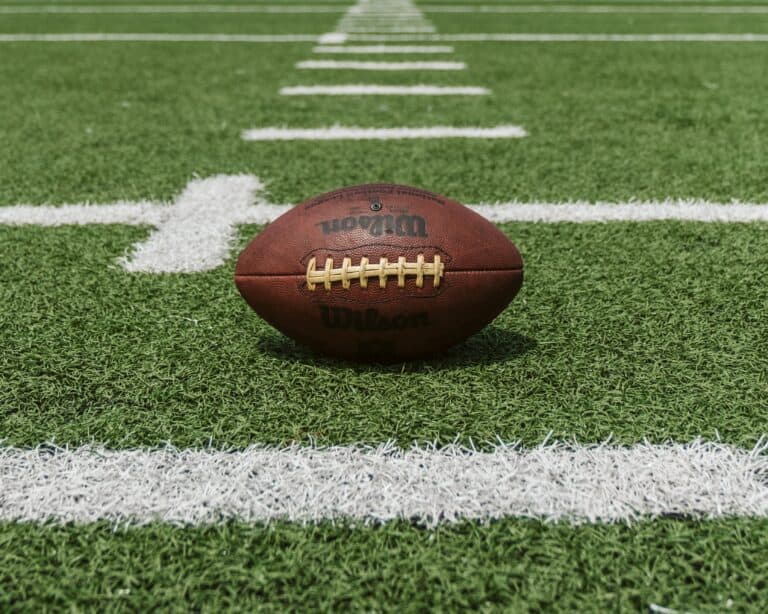
Noah Zatz is Professor of Law at the University of California, Los Angeles.
With Vice President Pence staging a counterprotest and Dallas Cowboys owner Jerry Jones issuing ultimatums to his team, it is worth reiterating that disciplining NFL players for taking a knee likely is illegal. Let us count the ways. Unlike a constitutional First Amendment analysis that must focus on government action (by, say, the President) to suppress speech, our humble labor & employment statutes focus on the players as employees of their teams. Ben has made the case under federal labor law, which shields workers from interference with their right to act collectively. But despite the controversy being centrally about race, legal theories grounded in employment discrimination law have been notably absent (and here) from most discussions.
There is a strong argument that benching, suspending (as Trump urged today), or firing players for “taking a knee” would run afoul of Title VII, the federal law that prohibits race discrimination in employment. In other words, it violates their civil rights as workers and illustrates the potential synergy between labor law and employment law.
The argument goes like this:
A) Many observers (also here) and players believe that a substantial factor in the hostile reaction to the anthem protests is that they have been led by Black players. Not only are the players protesting anti-Black racism, but the backlash itself reflects that racism in its demands for obsequious gratitude and racial comforting as a condition of Black success. Trevor Noah’s “When is the right time for black people to protest?” riff pretty much sums it up.
B) Faced with the specific threat, urged by the President and now endorsed by Jones, that players be benched, fired, or otherwise disciplined for their protest, taking a knee does not merely reiterate Colin Kaepernick’s original protest. It also declares solidarity with other players in opposition to the prospect of being fired for protesting, as players react to the attacks on their teammates
C) Putting (A) and (B) together implies that the current waves of protesting players are in part opposing race discrimination, including prospectively, against themselves and/or their fellow employees. Chris Conley’s reaction to Trump’s Alabama speech, immediately preceding the first time he kneeled during the anthem, captures this opposition to the demand for Black subservience:
https://twitter.com/_flight17_/status/911426312027475969?ref_src=twsrc%5Etfw&ref_url=https%3A%2F%2Fwww.sbnation.com%2F2017%2F9%2F23%2F16354502%2Fdonald-trump-nfl-players-reactions-national-anthem-protests-twitter
D) Title VII forbids employers to retaliate against such opposition conduct.
E) Therefore, firing workers for these protests would violate Title VII.
I won’t write out the full brief here, but here are a few key points that merit elaboration.
First, the argument does not rely on establishing that the threat to fire protesters is itself racially discriminatory. It seems clear enough to me, but it’s the kind of contested factual question that can easily bog down a case, especially one involving “mixed motives” and implicating perceptual segregation. To be protected against retaliation, however, a worker need only reasonably perceive discrimination, even if that turns out to have been incorrect in a jury’s judgment. Relatedly, because the claim sounds in retaliation, white players opposing discrimination against their teammates are also protected even if any discipline they face is not because of their race (though it could be).
Second, a team owner cannot defend himself by arguing—if he would dare do so—that he does not care personally about the protests one way or another but simply wants to protect his profits against the threat of economic harm from lost customers, the cost of which is the same to him whether it reflects racial resentment or not. There are some complexities to the analysis of such customer-driven discrimination, but the difficulties are reduced here both because the racial dimensions are on the surface and because of the more lenient “reasonable belief” threshold for retaliation purposes.
Third, the Supreme Court’s capacious Burlington Northern “adverse action” standard is doubly relevant here. It provides that any employer conduct that “could well dissuade a reasonable worker” is actionable if retaliatory. Some have doubted that benching alone is materially adverse, and although (unlike suspension or termination) that could be true for a substantive race discrimination claim, under Burlington Northern it clearly suffices for a retaliation claim. So, too, does an explicit threat to retaliate in the future. Accordingly, not only would an NFL team violate Title VII by carrying out a threat like Jerry Jones’, but also making the threat has already crossed the line. This dispute is ripe for litigation.
A subsequent post considers how this analysis might extend to teams’ decisions not to sign Kaepernick.









Daily News & Commentary
Start your day with our roundup of the latest labor developments. See all
January 16
The NLRB publishes its first decision since regaining a quorum; Minneapolis labor unions call for a general strike in response to the ICE killing of Renee Good; federal workers rally in DC to show support for the Protecting America’s Workforce Act.
January 15
New investigation into the Secretary of Labor; New Jersey bill to protect child content creators; NIOSH reinstates hundreds of employees.
January 14
The Supreme Court will not review its opt-in test in ADEA cases in an age discrimination and federal wage law violation case; the Fifth Circuit rules that a jury will determine whether Enterprise Products unfairly terminated a Black truck driver; and an employee at Berry Global Inc. will receive a trial after being fired for requesting medical leave for a disability-related injury.
January 13
15,000 New York City nurses go on strike; First Circuit rules against ferry employees challenging a COVID-19 vaccine mandate; New York lawmakers propose amendments to Trapped at Work Act.
January 12
Changes to EEOC voting procedures; workers tell SCOTUS to pass on collective action cases; Mamdani's plans for NYC wages.
January 11
Colorado unions revive push for pro-organizing bill, December’s jobs report shows an economic slowdown, and the NLRB begins handing down new decisions